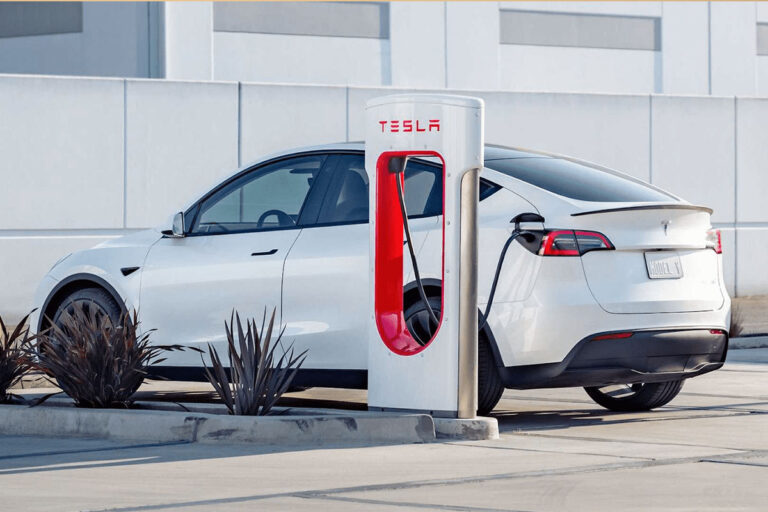The year 2023 marked a significant turning point for the French automotive market. According to the Automotive Platform (PFA), all-electric vehicles accounted for 16.8% of new registrations, while plug-in hybrids accounted for 9.2%. This growing trend towards electrification reflects a paradigm shift in consumer preferences and environmental policies.
Tesla has dominated the electric vehicle market in France and Europe, with its Model 3 and Model Y models leading sales. Chinese brands Dacia Spring and MG4 are close behind, demonstrating the market’s growing diversification. The presence of more affordable models such as the Fiat 500e and Renault Mégane also underlines the broadening of the market offer.
Price cut and wider offer
Despite a higher initial purchase price, electric cars are gradually becoming more affordable. In 2024, the automakers plan to launch models aimed at the general public, such as the Citroën ë-C3 and Renault 5, with prices under 25,000 euros. This trend is reinforced by growing competition and the anticipated fall in battery costs.
At the end of 2023, the government tightened the criteria for the purchase bonus, now reserved for electric vehicles and favoring lighter models produced in Europe. At the same time, a lease-to-own (LOA) scheme has been launched to make electric cars accessible to low-income households, with attractive offers from automakers.
Expansion of the Charging Network
France will have passed the 100,000 mark by 2023, 15% of which will be fast-charging. This expansion is crucial to supporting the growth of electric vehicles and facilitating long-distance travel, with networks such as Ionity, Tesla Driveco and TotalEnergies playing a key role.
2023 was a pivotal year for the French automotive industry, marked by the growing adoption of electric and plug-in hybrid vehicles. This trend, supported by government initiatives and market developments, points to an accelerated transition to more sustainable mobility.






















